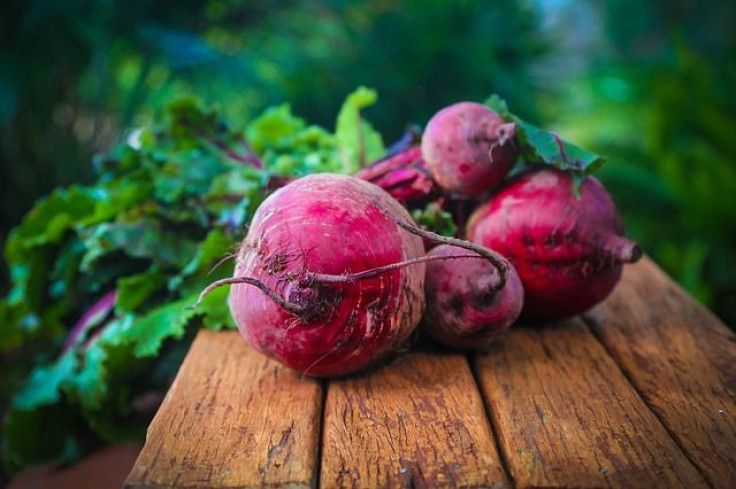Nitrate In Beetroot Juice Gives Elite Athletes Competitive Edge, Among Other Health Benefits

Before a workout, many of us will drink smoothies and eat protein bars to up our carbs and protein intake. These pre-workout snacks are meant to give us the energy and stamina to get more from our routines and boost our recovery time. Now, a recent study published in the International Journal of Sport Nutrition and Exercise Metabolism suggests adding some nitrate-rich beetroot juice to our workout plan can enhance our stamina, strength, and endurance.
In the two-part study, Dr. Peter Peeling from the School of Sport Science, Exercise and Health at the University of Western Australia and his colleagues, looked at the influence beetroot supplements had on physiological and performance outcomes in a group of elite kayakers. The performance of six national-level male kayakers was measured in laboratory-based four-minute ergometer tests. For the evaluation of female athletes, five international-level female kayakers competed in a field-based kayaking time trial. The men consumed a 70 milliliter (mL) beetroot supplement, while the women’s team drank a double shot (140mL) during a 500 meter time-trial.
The findings revealed the beetroot supplement had a small effect on how far the men could go, but improved the energy needed to maintain their speed by 5 percent. Meanwhile, the women’s team improved their overall performance by 1.7 percent. The more beetroot juice was consumed the better the athletes’ physical performance.
The researchers believe the relatively small performance changes that they recorded are “clearly relevant.” In the 2012 London Olympics, the margin between gold and silver medals in the Men’s K1-1000m and the Women’s K1-500m races was 0.3 percent and 1.0 percent, respectively.
The team attributes the boost to the inorganic nitrate content found in beetroot. Nitrate helped improve the efficiency of the processes that occur in the mitochondria, known as the cell’s energy factory. This means ATP, the molecule known as the cell’s energy currency, can rest during muscle activity due to less oxygen use. After drinking beet juice, the amount of oxygen, or oxygen cost, needed to sustain moderate exercise goes down.
Reducing the oxygen cost of any activity will help us endure more strenuous exercise for longer periods of time, according to the researchers. These results can extend beyond kayaking to any activity of a similar duration of two to four minutes, as well as cycling time trials up to 10 miles.
The benefits of beetroot juice may also have positive effects on our heart health. A 2013 study found a naturopathic approach can lower the risk of heart disease and metabolic syndrome (high blood sugar, high blood pressure, and high cholesterol). Beetroot juice can help establish healthy blood pressure levels.
The antioxidant-rich vegetable contains naturally occurring nitrates that increase nitric oxide, a molecule in the blood vessels. This helps open up the vessels to allow more oxygen flow as well as lower blood pressure. Previous studies have found inorganic nitrate and beetroot juice supplements were able to lower blood pressure by seven percent, and show systolic blood pressure (top number) to decrease the most.
So, should we eat or drink beets?
When it comes to lowering blood pressure, it’s best to drink beetroot to reap its maximum benefits. When a food, like beets, is cooked or fermented, the nutrients linked to good blood pressure diminish. However, when we juice beets, we are guaranteed to get all of the phytonutrients, or plant chemicals, linked to lower blood pressure.
The only side effects of beet juice are urine and bowel movements may produce a red color, but this is harmless. However, those whose bodies make oxalate kidney stones may want to avoid beets since they are high in oxalates.
Beets have become so popular, even in sports, that “seeing an athlete with red beetroot stained lips at an endurance event is no longer unusual,” said Peeling, in the statement.
Source: Peeling P, Cox GR, Bullock N et al. Beetroot Juice Improves On-Water 500 M Time-Trial Performance, and Laboratory-Based Paddling Economy in National and International-Level Kayak Athletes. Int J Sport Nutr Exerc Metab. 2015.



























